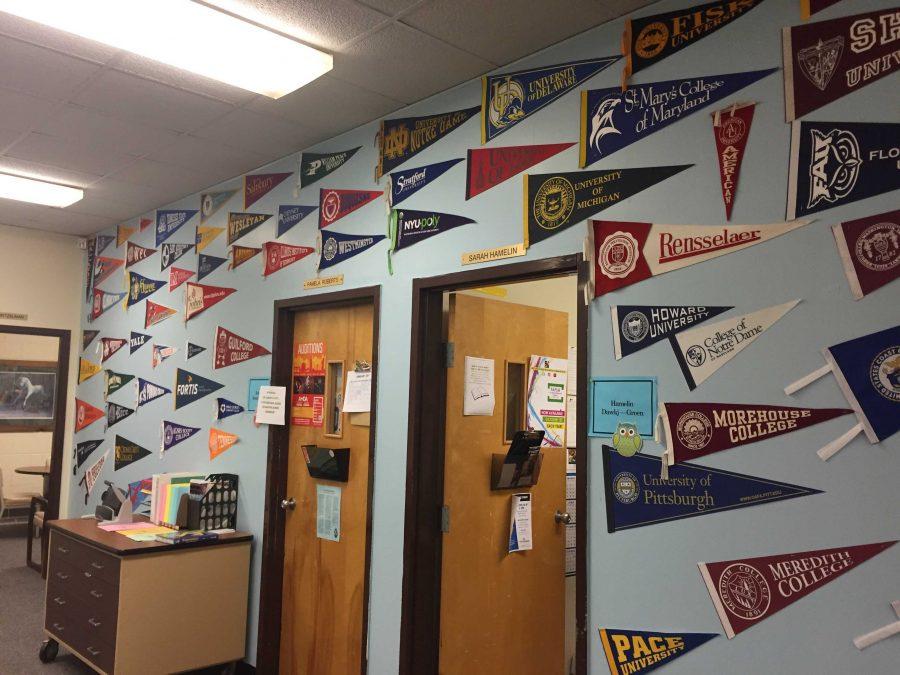Opinion: How Not to Talk About College
February 14, 2017
Recently, colleges have started to send out acceptance letters and emails en masse. This is an exciting time, where all of the work seniors put in over almost four years yields real results, and the road ahead starts to look clear. However, much of this excitement hinges on whether or not people get in. A single slip of paper can make or break someone’s whole semester.
With this is mind, it is important to consider how to talk to peers about colleges and scholarships without sounding like someone who lacks a basic level of sympathy. Here are some basic facts that everyone should be aware of.
Not everyone can get into the same schools. Every person has different talents and abilities, and not everyone has a skill set which lines up with what many universities are looking for. If student 1 does not have quite the grades or the test scores as student 2, that does not make student 1 better than 2. Yet, most colleges use mainly these metrics as ways for selecting applicants to let in. Fortunately, most of the time this system works out, and students will be accepted into programs they can manage. So, in order to avoid slighting anyone, recognize that it is admirable to be admitted into any institution of higher education, even if some are viewed as more prestigious.
Not everyone can afford the same schools. This is the hardest part for many to grasp. Some students have never had to think about putting themselves or their family in debt to attend school, but the fact is, most people cannot realistically afford to attend $40,000 a year institutions, let alone Ivy League schools with $65,000 price tags. To these people, getting into their dream school is only half the battle; they still have to work to pay for it. Whether this means external scholarships, loans, or attending their second or third choice school, sacrifices have to be made. If you can easily afford school, great, but understand that not everybody is in the same boat.
Not everyone thinks it’s a “safety school.” The University of Maryland is a great example. Especially this year, getting into UMD is no small task. Many people did not get admitted, and for people who were either overqualified or lucky enough to be successful to say “it was my safety school” belittles both the prestige of the university and the efforts of other students. Imagine how it would feel to get into a school with an extremely low acceptance rate, such as Harvard, only for another student to say, “Harvard was my safety school, I’m really trying to get into Stanford.” That person is completely out of touch with reality.
Not everyone knows exactly what they want to do with their lives. Some students know exactly what they want to do with their lives–they know that they would love a technical school, or have traced their careers all the way through to med or law school. However, for many the path is not that clear. They either are not sure about what they want to do with their lives or they do not know how to get there. For these people choosing where to apply, where to enroll, and eventually what to major in is quite tricky.
When these four simple concepts are kept in mind, it is much easier and more rewarding to discuss this exciting time with friends. Everyone can be happy for whatever successes peers have, and with them luck in wherever college takes them.




